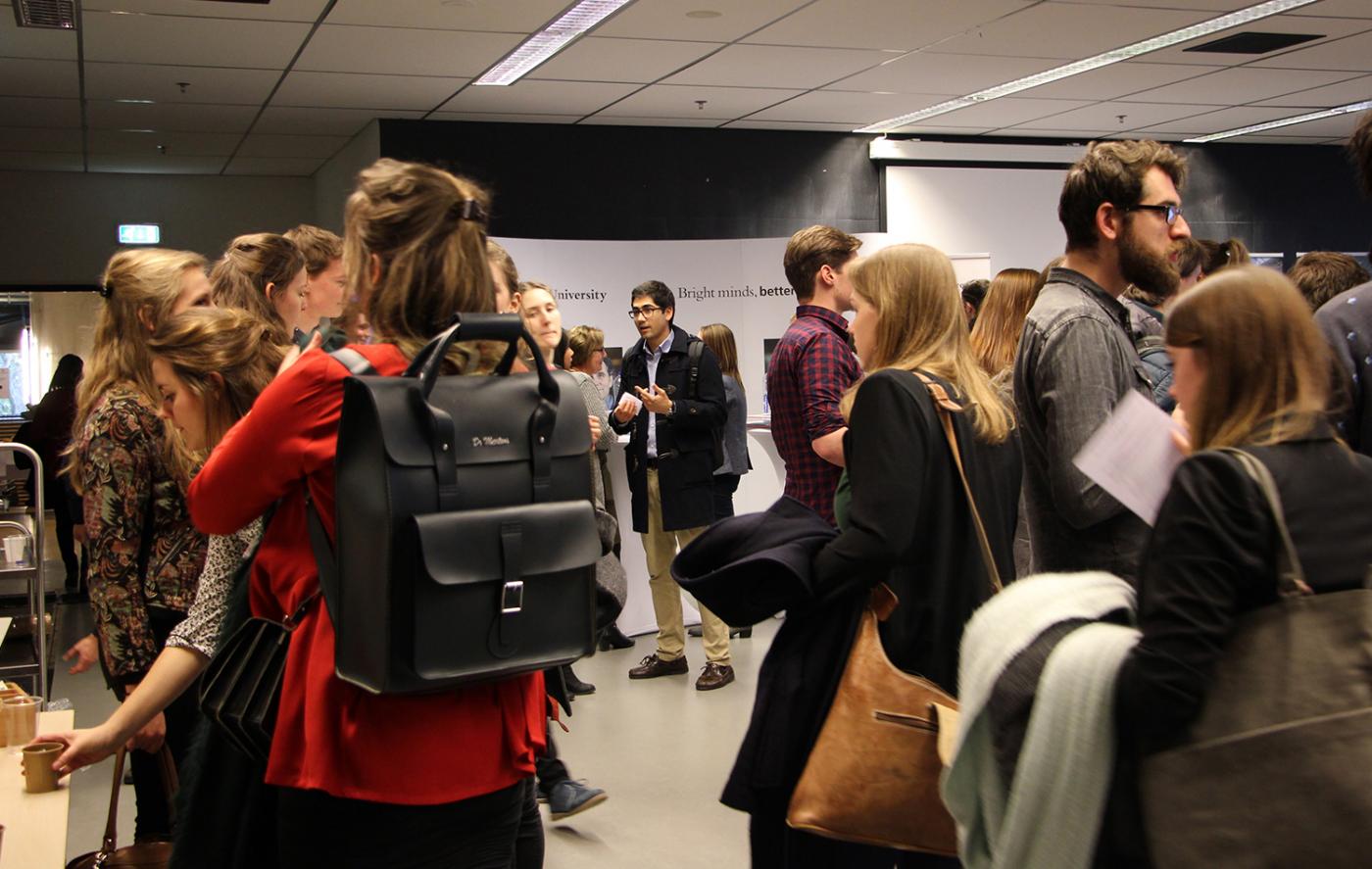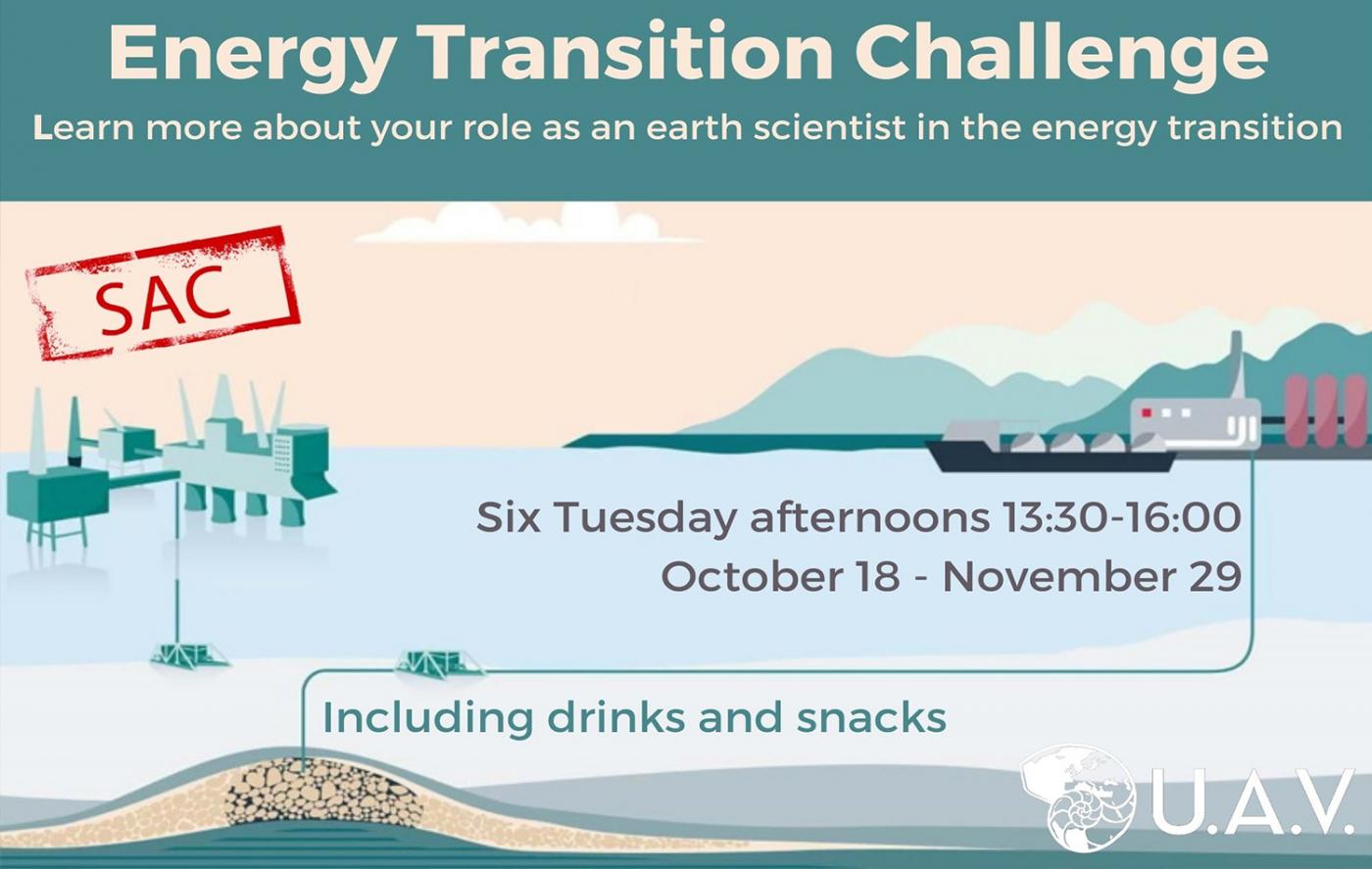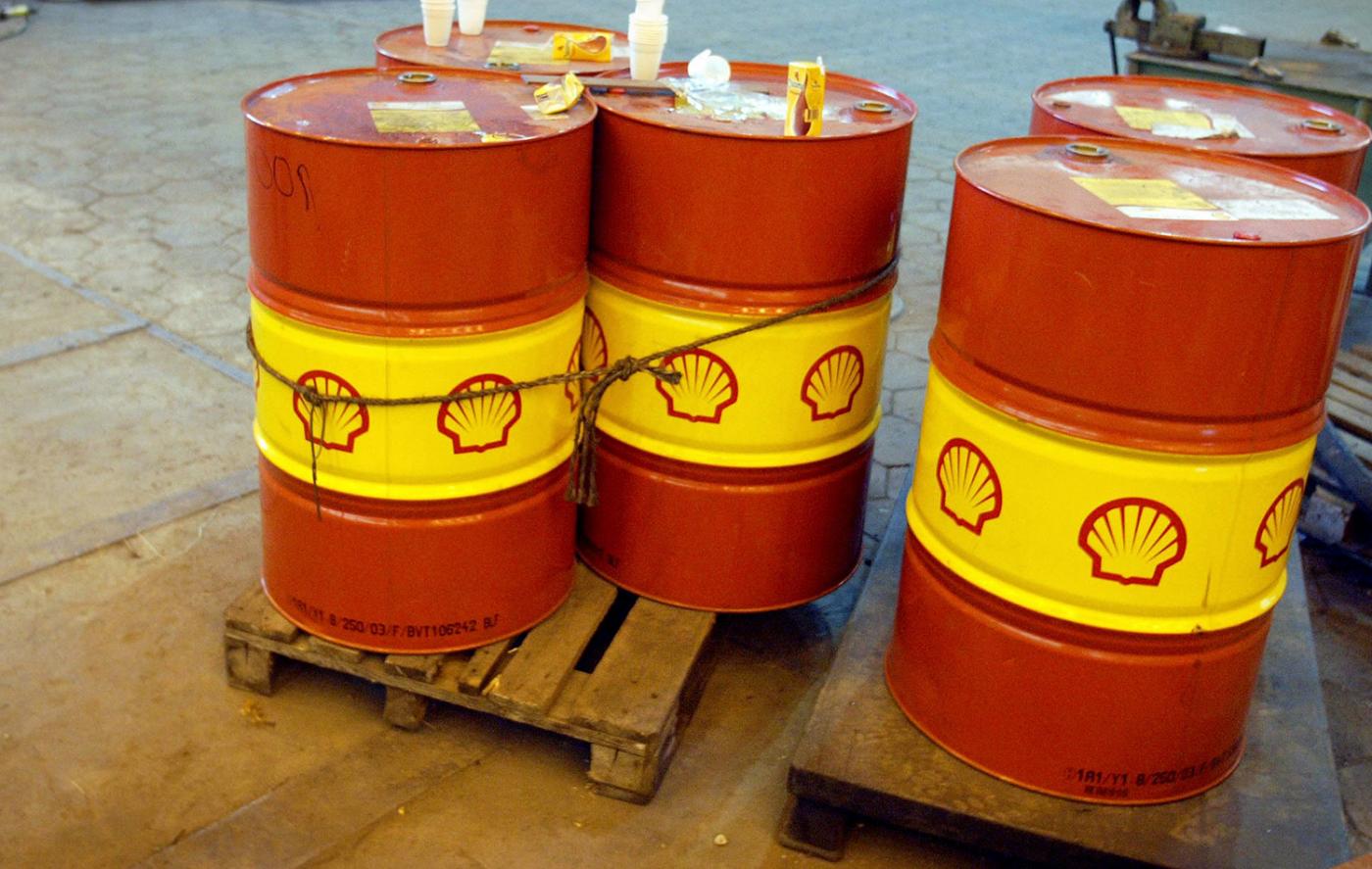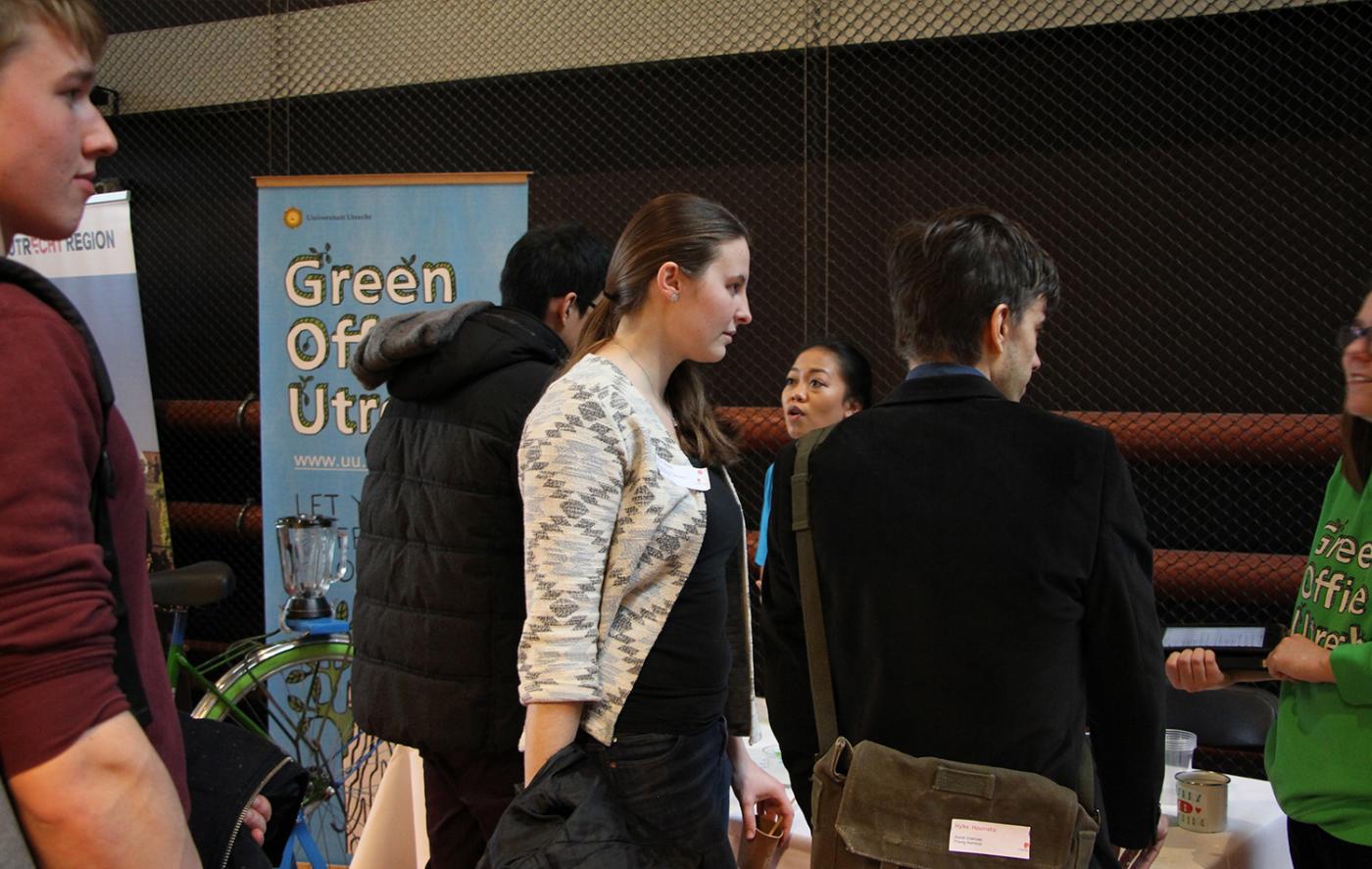Study association UAV struggles with links to the fossil industry
Only sustainable companies at UU's career days

The Utrecht University Career Days will take place on 13, 14 and 15 March. During these days, various companies and institutions will present themselves. Students, PhD students and alumni can also orient themselves to the job market and introduce themselves to future employers. Valéry Oude Groen-Van Rijswijk, team manager Career Services, says her team is free to make an informed choice about which companies and institutions may attend the career days. This year the sustainable character of companies plays an important role in the selection. “We are not obliged to let UU sponsors from the fossil industry speak, for example. Sometimes, that’s different at study associations.”
See the Utrechtse Aardwetenschappen Vereniging (UAV), which has sponsor deals with ‘fossil companies’ EBN, Shell, Petrogas and Wintershall. In exchange for financial support, the association offers company presentations, visits and advertisements to those companies. The board then uses these contributions to finance some of the activities of the association. Without that 'fossil' income, some of the study activities would become too expensive and they could organise less.
Additionally, the fossil companies have traditionally always offered good job opportunities to UAV members. Through the sponsorship arrangements, members easily get in touch with companies where they might potentially work later. Moreover, many alumni work at those companies, creating strong ties with the association.
Over 30 companies that are not from the fossil industry also sponsor the association. In the past, the board received a query from a 'green' company that was curious whether UAV's members were an attractive target group for them in connection with the sponsorship arrangements with Shell. But according to Dexter, president of UAV, there was no cause for concern. "Our study provides a lot of smart minds in the field of sustainability. So they are ideally suited to make a difference in this sector in the future."
Sympathetic
According to Dexter, UAV is sympathetic to the energy transition, despite their ties to the fossil industry. "The lunches we organise are always vegetarian and we as an association always prefer travelling by bike, bus, boat or train to airplane. We try to print fewer programme booklets by offering them online. And every year, we organise the Energy Transition Challenge. This is an activity where our members learn more about their role in the energy transition and what it involves. So we are always looking for things that can be improved."

The board, therefore, held a member input meeting on 16 February on the association's ties with the fossil industry. In doing so, the board wanted to explore whether it is still desirable to maintain those ties. Within the association, there have been occasional discussions on the subject for some time. UAV's board wants to set up a new sponsorship policy and the member participation was mainly about the frameworks for new sponsorship agreements and whether sustainability should be part of it.
Attendees shared a variety of opinions. Some felt that all ties with the fossil industry should be severed, while others felt that UAV members going into the fossil industry could make a difference from within with their knowledge. The board needs to make a thorough assessment in the coming weeks before it can make a decision. They hope to have a policy ready for the academic year 2023-2024.
Cléo, chair of the board of Storm, the sustainability science study association at UU, says she does not condemn UAV's board for its ties to the fossil industry. "Our main task as a study association is to represent our members. Therefore, we invite companies that fit the members' needs on career days. Fortunately, our members usually don't want to work in the fossil industry out of principle. They would collectively protest if Shell suddenly sponsored us. But with the UAV, it is different because some of their members do go to work in the fossil industry. If the majority of members prefer to keep ties with the fossil industry, then the board has to set aside their own convictions. I sometimes tease them about that too. We are good friends as boards, despite our differences."
UU Career Days
The debate on ties with the fossil industry is not only taking place at UAV, but also the UU as a whole is struggling with the relationship. In February, Utrecht University rector Henk Kummeling announced he would not break these ties despite student protests. However, Shell will not be at this year's university career days, which has been different in the past.
According to Valéry Oude Groen-Van Rijswijk, who has been responsible for organising the career days with her Student Development Team since last September, they have much more freedom than student associations to choose their speakers. They are not tied to UU sponsors. "Fortunately, I am not being panted down my neck by Shell", says Oude Groen-Van Rijswijk.
According to her, sustainability has increasingly become a spearhead at the career days in recent years, partly due to all the student protests. Oude Groen-Van Rijswijk herself is a member of the University Council and of a committee responsible for UU's sustainability policy. "That's why I know how important sustainability is for students. For example, we see people with so-called Ecofear appearing at student psychologists and student advisers. People with Ecofear are really very worried about the future and the climate. And I understand that too. That's why we have sustainability high on the agenda. Of course, we don't reach all students during the career days, but every little bit helps."

Foto: DUB
Screening
So in part, the focus on sustainability during the Career Days comes from Oude Groen-Van Rijswijk herself, but she also has two student assistants on her team who help pick the right companies. "I could come up with which companies are suitable for students, but of course, students themselves know that much better. So that's why they suggest the companies. Then we will work with the whole team to see which of those organisations are the best fit for our career days."
Her team thoroughly screens the companies, not just for sustainability. "The career days are an active channel for companies to recruit students. Therefore, we engage with those companies well in advance on aspects such as diversity, inclusion and development opportunities. We really try to offer quality opportunities."
But besides offering job opportunities for students, the Career Days have another important function, according to Oude Groen-Van Rijswijk. "We can make a statement by only having representatives of sustainable companies speak. Because although UU still has ties to the fossil industry, as an independent team, we can show that within the university, we really do try our best to be more sustainable. And by having only sustainable companies attend the career days, we want to show students that there are plenty of good opportunities in the sustainability sector. That you really don't have to end up at Shell to get a good job."

Careersday UU Foto: DUB